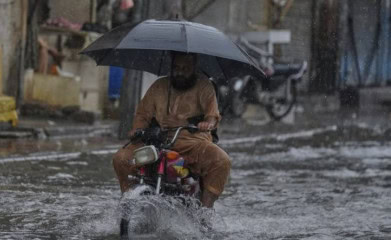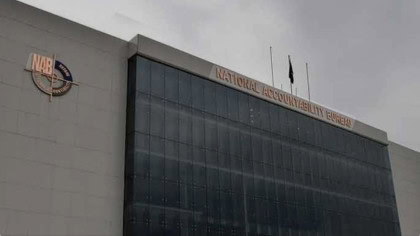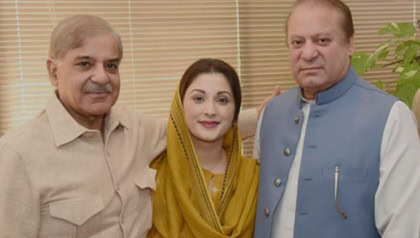PAKISTAN is on a winning streak.
Time is on its side, and it is playing its cards well. The sweep started with a four-day war that Pakistan won effortlessly and dislodged India from the self-proclaimed crown seat of South Asia’s diplomatic leadership. The downing of six Indian aircrafts by the Pakistan Air Force in May 2025 was not just a strategic defeat, but a huge symbolic setback for India.
This is too obvious and superficial an analysis, essentially, it all started with India’s gradual regional isolation and international exposure. India had used the core principle of hard hedging which is to both engage and resist for some time now. It was trying to act smart by playing both sides of the fence and finally got exposed. This is now like being on a slippery slope. India has not been able to stall. The world was both startled and taken aback.
Post blaming the Pahalgam attack on Pakistan, India had expected the usual scheme of things to come into play: it cooks up a scenario of a terror attack in Kashmir, blames Pakistan for it, and the international community falls in line and follows suit. In at least nine major incidents, ranging from the 2001 Indian Parliament attack to the 2019 Pulwama attack and the Pahalgam attack in 2025, India has falsely blamed Pakistan, often before any evidence was fully examined. Subsequent inquiries revealed contradictory findings, consistent with a troubling false-flag pattern.
Pakistan’s call for an impartial investigation immediately after the Pahalgam attack gave Pakistan a strategic high moral ground. New Delhi’s narrative received zero endorsement. At best, just neutrality even from India’s backers and friends. The U.S. wanted to be the mediator; both Russia and France refrained from blaming Pakistan. The UK also pursued a balanced diplomatic role in defusing tensions but definitely did not take sides. This with time got further consolidated in various forums also.
Pakistan, instead of reacting emotionally, responded with political maturity by immediately condemning the attack and offering a joint investigation with any independent body. India chose not to respond to this sane offer and instead crossed a red line, attacking Pakistan on the basis of a lie, striking at least six cities and killing thirty-one people, including children, followed by drone attacks inside Pakistan. India was looking at establishing a new normal, and prior to that, also put the Indus Water Treaty in abeyance, an act of war in itself, which continues to be the case and may result in the U.S.-brokered ceasefire faltering.
Coming back to the diplomatic fall of India, triggered by Indian arrogance under Modi-Jaishankar duo, can be traced back to India maltreating and harassing every single neighbour. From Bangladesh to Sri Lanka to Nepal and the Maldives, it was always “my way or the highway.” Thus, making India a regional hegemon without a region.
India ignored the emerging web of shifting alliances and the evolving regional geo-economics and thus made strategic blunders. Pakistan was surrounded by friends and tangible support from China, Turkey, Azerbaijan, Bangladesh, and Iran. On the other hand, India was left out in the cold, even the QUAD nations did not openly come out to support the Indian stance.
India completely misread the global sentiment, overestimated its economic clout and underestimated global pragmatism. It continues to do so by harping on the same string, trying to get SCO and QUAD to name and shame Pakistan without any tangible evidence to support its stance. Pakistan had been doing its homework for some time now, building its case brick by brick, demystifying the fog India had created around the terrorism debate. India’s arrogance backfired in a big way. The entire global focus shifted from counterterrorism to a regional war on the second most dangerous border on the face of the Earth.
Pakistan once again exhibited both restraint and maturity of conduct by agreeing to the ceasefire. By now, India was desperately trying to hurt Pakistan anywhere and everywhere, getting exposed and looking lost. This included trying to keep the IMF from giving Pakistan its due bailout, trying to get Pakistan back on the FATF grey list, and even resorted to using the western border more aggressively to increase infiltration into Pakistan.
At the recent SCO Defence Ministers’ summit in Qingdao, India tried to push its brow-beaten narrative. The Indian Defence Minister Rajnath Singh refused to sign the joint communique because it didn’t mention the Pahalgam attack or blame Pakistan, while referencing Balochistan, clearly not the script India was expecting. With China hosting and most members not buying into India’s usual rhetoric, the statement was dropped altogether. A Pakistani official was quoted saying that, “India failed to link the Pahalgam incident to Pakistan in the joint communique, declined to sign the communique to cover its embarrassment, received no support from any member state on the Pahalgam issue and also stood alone in its differing stance on Israeli aggression against Iran”.
In addition, Lt. Gen. Asim Malik, Pakistan’s National Security Advisor, speaking at the SCO summit, stated that India’s narrative was baseless and politically motivated. He added that India is actively supporting separatist and extremist groups in Balochistan and Khyber Pakhtunkhwa, referencing 84 terror attacks linked to the Indian intelligence agencies.
These figures were presented as irrefutable proof of Indian state-sponsored terrorism. Pakistan ranked second in the Global Terrorism Index 2025, with the number of deaths from terrorist attacks rising by 45% over the past year. Despite the noise, Pakistan stayed firm, calm, and collected. No defensive posturing, just strategic clarity. This was another moment where India found itself with no backers, and Pakistan walked away stronger. The shift now is not a quiet one.
India lost the “narrative war”, the “air war” and it’s so called “new normal” did not fly. India’s signalling a revised threshold for response has found zero buyers and subsequent desire to set a new normal by Israel and the US in Iran has also misfired if not backfired. Pakistan gave India a pushback that will resonate for a long time both in the region and beyond. Pakistan Zindabad!



















